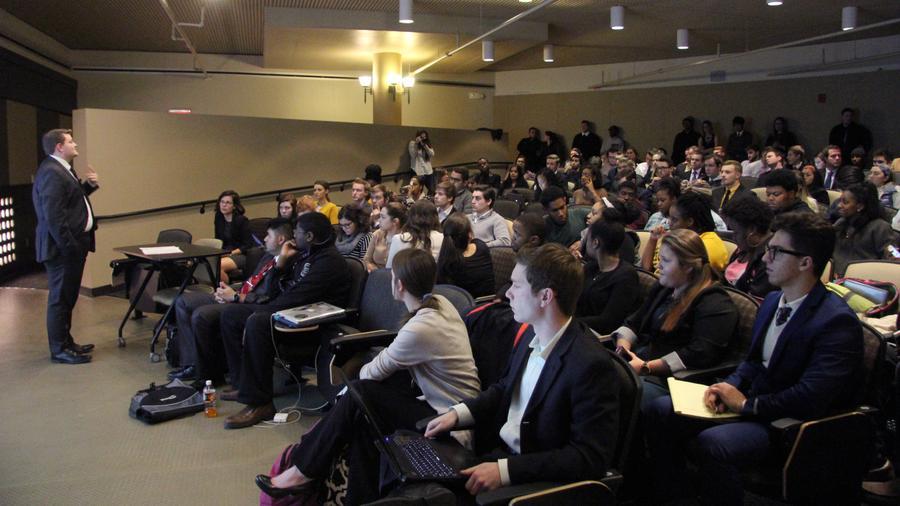The quorum call for full Senate on March 16 was a tense moment, especially for freshman Claire Jacobs, who presides over the current list of active senators.
In her second full Senate meeting as legislative chief of staff, Jacobs was given the wrong list. When she began calling out names during attendance that Senate hadn’t heard in years, the crowd murmured with disapproval. In the confusion that followed, it was unclear whether there were enough senators present to continue the meeting.
“All of the sudden people were like wait, this person isn’t on Senate anymore,” Jacobs said. “I was given the list the day I became chief of staff, and no one had expressed any concern.”
Although Senate realized the issue and corrected it, the incident highlighted a recurring fear that has become all too real of late — the possibility of not reaching quorum.
According to the bylaws of the Missouri Students Association, 40 percent of all senators must be in attendance at full Senate meetings in order to conduct business. Of Senate’s 57 current members, this means that 22 must be present at each meeting. In recent weeks, this number has come close to not being met, prompting a number of senators to speak on the issue of regular attendance at committee meetings and open forums.
The issue of senator retention is [nothing new for MSA.](https://www.themaneater.com/stories/2015/2/10/students-say-overinvolvement-more-harmful-helpful/) Each semester typically brings a new surge of new members into the organization but, as students fall under increasing academic strain, many decide they cannot keep up with the projects in Senate, Sen. Saad Malik said.
The withdrawal of students over the course of the semester makes it difficult for Senate to maintain a fair quorum count. Many students who decide to leave MSA simply stop coming to meetings, leaving Senate to decipher who is still a member and who is not.
“Realistically, a speaker and a chief of staff cannot keep track of those people,” Malik said. “Unless they are told by a chair or by other senators they aren’t necessarily aware (that) these people are gone.”
In the past, MSA has primarily promoted itself to incoming freshmen at events such as Summer Welcome. Former Campus and Community Relations Chairman Alex Higginbotham said he doubts whether MSA should continue this approach. Instead, he said MSA should focus more on recruiting older students and raise the requirements for electing new Senators to ensure that members understand the time commitment involved.
“There’s actual hard work to be done in (MSA),” Higginbotham said. “This is not about putting something on your resume. MSA first and foremost is a service position toward the students.”
Currently, the MSA bylaws do not include a formal participation policy, leaving decisions regarding the expulsion of senators in the hands of the senate speaker. The last two speakers have chosen to expel senators who missed two consecutive full Senate meetings, but this unofficial rule was not consistently enforced.
Former Senate Speaker Kevin Carr, who favored a relaxed attendance policy during his term, disagrees with creating stricter rules for students involved in MSA. As senators debated the possibility of implementing a formal attendance policy at the Operations Committee meeting on March 22, Carr cautioned the committee, calling Senate “an army of volunteers.”
“If you have a tough attendance policy I think you run the risk (that) you might turn away people who want to do good work,” he said. “You have to make people want to come to committee before you start requiring them to be.”
During the meeting, Operations Chairman Josh Tennison said he would like to see a formal attendance policy written into the bylaws. Mark McDaniel, the current senate speaker, said he wants to look into and implement it before the start of the next academic year.
McDaniel said he would like to institute an attendance policy that doesn’t alienate students who want to make a difference but still encourages responsibility. In the meantime, McDaniel said he hopes to redefine MSA’s elitist image in order to attract more students.
“When students no longer feel motivated in the organization that they are a part of they just phase themselves out,” McDaniel said. “The main thing is just general engagement — how we engage with our staff members and make them feel not only welcome but appreciated as a part of this organization.”
_Edited by Waverly Colville | [email protected]_








